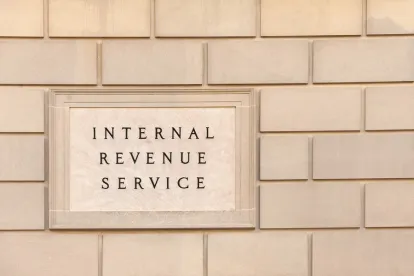The Internal Revenue Service (IRS) recently issued needed relief to extend some amendment deadlines for non-governmental qualified retirement plans and 403(b) plans, and for individual retirement accounts (IRAs) under the Setting Every Community Up for Retirement Enhancement Act of 2019 (SECURE Act), the Bipartisan American Miners Act of 2019 (Miners Act), and certain provisions of the Coronavirus Aid, Relief, and Economic Security Act (CARES Act) until December 31, 2025. However, the IRS did not provide relief for all required amendments for the 2022 plan year. Plan sponsors that elected to offer COVID-related distributions or loan relief (or utilized disaster-related relief for loans or distributions under the Taxpayer Certainty and Disaster Tax Relief Act of 2020) still need to amend their plans by the end of 2022 plan year.
Background
Plan sponsors were in a precarious position as the IRS has yet to publish certain guidance implementing changes required under the SECURE Act, including finalizing the rules for required minimum distributions. The pending bipartisan retirement legislation, informally referred to as “SECURE 2.0” (i.e., the Securing a Strong Retirement Act and the Enhancing American Retirement Now (EARN) Act), would provide amendment extensions, but the bill is not expected to pass until at least late in 2022. SECURE 2.0 also could change provisions of the original SECURE Act, creating further uncertainty as to current amendment requirements. For example, the long-term part-time employee rule was part of the SECURE Act; this rule allows part-time employees meeting certain three-year service requirements to become eligible to join an employer plan for purposes of making salary deferrals beginning in 2024. But the long-term part-time employee rule may further change as part of SECURE 2.0. By extending the amendment deadlines, the IRS has minimized the number of amendments that will be needed to address possibly shifting legislation if SECURE 2.0 is passed.
IRS Notice 2022-33
Except for noted special amendment deadlines noted above (which should be carefully reviewed), Notice 2022-33 (the Notice) extended the plan amendment deadline for non-governmental qualified retirement plans and 403(b) plans and for IRAs to December 31, 2025, for the SECURE Act, Miners Act and CARES Act changes. The Notice also extended the anti-cutback relief provided by the SECURE Act through the end of the extended amendment period.
The special amendment deadlines included in Section 2202 of the CARES Act—which provided for COVID-related distributions and COVID-related loan relief to participants— continue. As a result, plan sponsors that took advantage of this CARES Act relief will generally need to ensure that their plans are amended by the end of the 2022 plan year to include these provisions.
In addition, Notice 2022-33 did not provide an extension for any plan changes related to the Taxpayer Certainty and Disaster Tax Relief Act of 2020 (Disaster Act). The plan amendment deadline for the Disaster Act had been the same as the SECURE Act and CARES Act, but Disaster Act amendments were not extended. Thus, plan sponsors must adopt applicable Disaster Act amendments by the end of the 2022 plan year.
For governmental plans, the amendment deadlines are slightly different. Amendments to governmental retirement plans or 403(b) plans must be adopted within ninety (90) days after the close of the third regular legislative session of the legislative body with the authority to amend the plan beginning after December 31, 2023. A governmental 457(b) plan has until the later of: (i) that same deadline or (ii) the first day of the first plan year beginning more than 180 days after the date the plan receives notice from IRS that it is not being administered in accordance with the requirements of Section 457(b) of the Internal Revenue Code.
Action Items
Plan sponsors that elected to offer COVID-related distributions and COVID-related loan relief need to amend their plans by the end of the 2022 plan year. Similarly, plan sponsors that took advantage of Disaster Act relief need to amend their plans by the end of the 2022 plan year. All other plan sponsors should continue to watch for further IRS guidance and determine how to include mandatory or desired legislative provisions. Plan sponsors should also understand current administrative compliance requirements (if any) that may be on an earlier timeline and continue to monitor the potential passing of SECURE 2.0.





 />i
/>i
